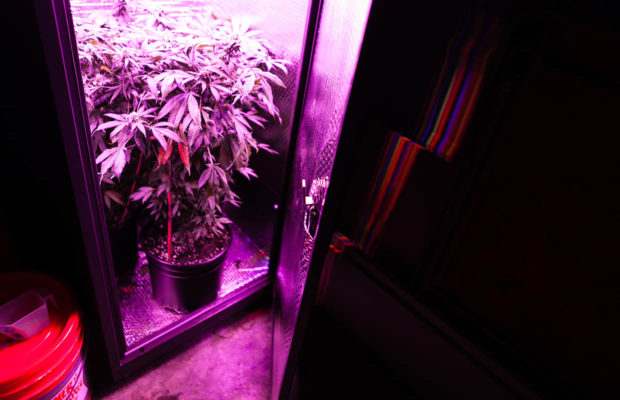Washington state is a West Coast cannabis state. By this, we mean cannabis users have for a number of years in Washington enjoyed expansive rights compared to other states in the U.S., even compared the newly legal eastern states where the plant is often kept under strict lock and key.
But Washington state has one very significant exception to its lax cannabis regulations: no home growing. You can go to a recreational dispensary without a medical-marijuana recommendation and load up. You cannot, however, crack a seed from that bag of mid-grade and start your own grow. Unlike Oregon, California, Colorado, Alaska, and every other state where recreational marijuana is legal, adults in Washington cannot cultivate at home unless they have a medical-marijuana recommendation.
What gives? Home grow was left out of Washington’s legalization initiative, I-502, because polling in 2010 revealed home grow made citizens leery.
Now, with 1,300 commercial grow and processing operations licensed in the state — and with more than $2.6 billion in legal cannabis sold over-the-counter since July 2014, when recreational dispensaries opened for business — it would appear the proverbial horse is out of the barn.
In this post-legalization atmosphere, there’s new pressure to allow hobbyists to potter around in a cannabis garden in the same way they can attempt to brew beer or grow a sourdough starter, but even tiny home grows are still far from a guarantee.
On Dec. 6, the Washington state Liquor and Cannabis Board released a report weighing the pros and cons of allowing citizens to grow no more than four plants in the privacy or their own homes, as the Everett, Washington-based Herald reported. Even this isn’t without controversy.
Some pot-friendly public officials think home grow is a bad idea in the Trump era.
Because Attorney General Jeff Sessions appears to be examining federal cannabis policy carefully, lawmakers are worried that he might be potentially parsing state cannabis activity for the slightest violation of the Obama-era Cole Memo.
Similar fears of an activist Justice Department taking a bite out of state-legal cannabis, coupled with an unfortunate tendency of “home-grown” marijuana to make its way out of state, led Colorado to cut its allowance from 99 plants to 12.
If these are the only options, not every cannabis advocate is in favor of legalizing home grows. As the Seattle Times reported, the state’s Cannabis Alliance, which bills itself the largest pro-pot group in Washington, is in favor of keeping the ban in place for now while hoping for some home-grow rules that are more permissive.
There’s also an argument to be made against home grow in that it’s a right few citizens exercise. Fewer than one percent of Washington residents grew their own weed in 2014, according to a poll — but whether that’s because it’s a difficult thing to do, or because it’s difficult to get permitted, wasn’t clear.
Of course, it’s also uncertain whether a ban does anything to dissuade bad actors currently growing well more than four plants with the intent to ship them out of state.
Lawmakers will mull these and other fine points during next year’s legislative session.














